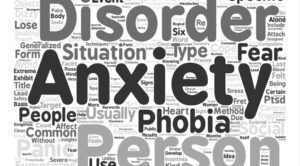Positive Dreams and a Peaceful Mind: Research Study
A new study conducted at the University of Turku (southwestern Finland) has found that our waking mind truly has an effect on our dreams. Sigmund Freud believed that dreams reveal the unconscious mind. It has long been believed that dreams can also reveal certain aspects of our conscious mind and daily thinking, feeling and over all well-being. Dream researchers in the past have focused more on the dreams of people experiencing various mental disorders rather than the positive aspects of dreaming and well-being. Do you have happier dreams if you are a happier person? Most researchers of well-being have focused on happiness and have neglected the important aspect of “peace of mind”.
Pillerin Sikka, Doctoral Candidate in Psychology at the University of Turku and Lecturer in Cognitive Neuroscience at the University of Skovde, and lead author in a recent article published in the Nature group Journal of Scientific Reports stated: “We wanted to address these important gaps in both dream and well-being research and to study how dream emotions are related to not only different aspects of waking ill-being, but also to different aspects of waking well-being, including peace of mind. In fact, this is the first study to look at how peace of mind relates to dream content.”
She went on to state, “Peace of mind is a state of inner peace and harmony, a more complex and durable state of well-being traditionally associated with happiness in the Eastern cultures”.
The study’s co-author Antti Revonsou, a Professor of Psychology at the University of Turku and Professor of Cognitive Neuroscience at the University of Skovde added that, “Even though it has rarely been directly measured in studies of well-being, in several philosophical traditions and spiritual approaches, peace of mind has always been regarded as central to human flourishing”.
Researchers in the study asked healthy individuals to fill out a questionnaire that measured their “ill-being” or “well-being” while awake and were then asked over the next three weeks to keep a daily dream diary which they would fill out each morning upon awakening detailing their dreams and rating the emotions experienced in those dreams. It was found that individuals experiencing higher levels of peace of mind experienced more positive dream emotions while those experiencing higher levels of anxiety also experienced higher levels of negative dream emotions.
These results concluded that if we are to understand how dreams are related to our waking state, we need to focus not only on symptoms of mental “ill-being” but also need to measure various aspects of “well-being”. Sikka explained that although some aspects of what we typically consider to be “well-being” did not seem to be related to dream content. There seemed to be something unique about “peace of mind”.
It has been proposed by researchers that one explanation for these conclusions is that possibly people who have higher levels of “peace of mind” may be better able to regulate their emotions not only when they are awake but also when they are dreaming. Obviously, the opposite would then be true for individuals with higher levels of anxiety.
Sikka concluded that the next step in research may be to find whether the ability to regulate emotions and maintain a higher-level of self-control is something that is fundamental to people with higher levels of “peace of mind” and whether improving these skills could actually lead to higher levels of peace of mind.
Adapted by Paul Susic Ph.D. Licensed Psychologist from article “Sweeter Dreams in a Peaceful Mind” ScienceDaily, August 24, 2018
Story Source:
Materials provided by University of Turku.
Journal Reference:
Pilleriin Sikka, Henri Pesonen, Antti Revonsuo. Peace of mind and anxiety in the waking state are related to the affective content of dreams. Scientific Reports, 2018; 8 (1) DOI: 10.1038/s41598-018-30721-1




